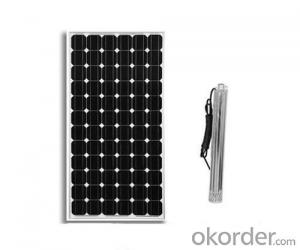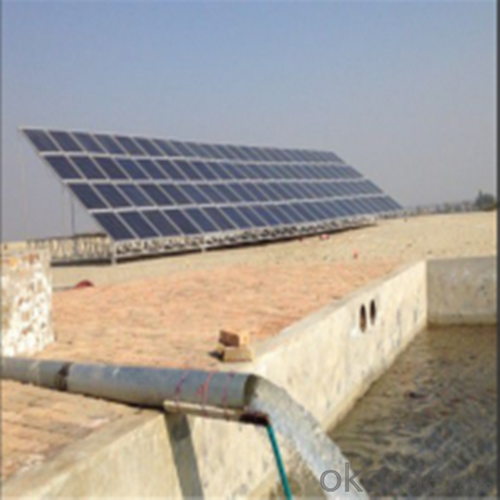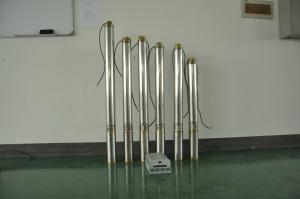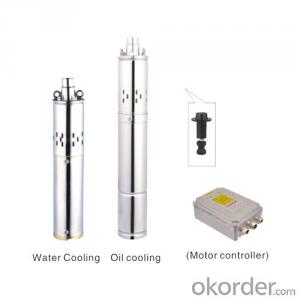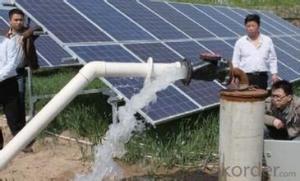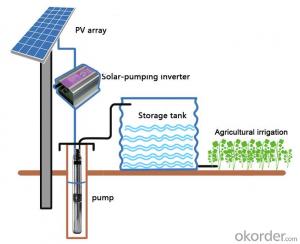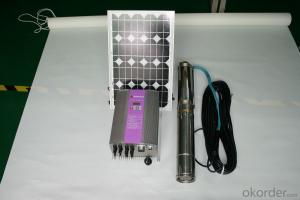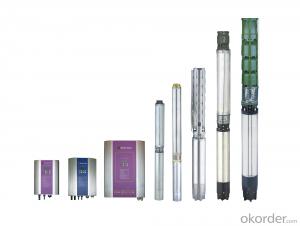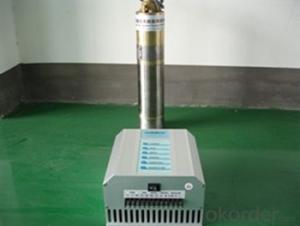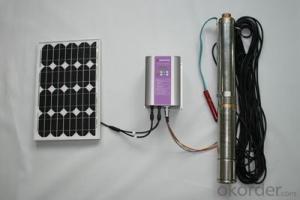Rainperfect Solar Pump Solar Water Panel for Irrigation
- Loading Port:
- Shanghai
- Payment Terms:
- TT OR LC
- Min Order Qty:
- 1 set
- Supply Capability:
- 1000 set/month
OKorder Service Pledge
OKorder Financial Service
You Might Also Like
Solar Water Panel Solar Pumps For Irrigation
DC solar water pumping system consists of the motor, pump, controller, solar array and some other accessories, such as water level sensor, float switch, etc. Considered that storing water is more efficient than storing electricity, the system is designed to directly drive the pump without battery which can reduce the construction and operating cost and routine maintenance effectively.The PV array consists of multiple solar panels connected in series/parallel, which can supply the whole system as power source by converting the absorbed solar radiation energy to the electrical energy. The pump driven by a brushless DC permanent magnet motor draws water from deep-well or river. The pumped water is then fed into reservoir or water tank, or connected to the irrigation system or fountain system directly.
Advanced Technology
Applications Innovation
The efficiency of DC brushless permanent magnet motor has been increased up to 25% in comparison with traditional asynchronous motor.
Technology Innovation
Stator and rotor are sealed by environment friendly casting resin.Motor insulation resistance can be hold higher than 300MΩfor more than 10 years, which consumedly increased the security and reliability of the submersible motor.
Structure Innovation
Casting resign technology processed stator and rotor as well as the water lubricated bearing make the submersible pump environment friendly.
Feature
High Efficiency & High Reliability
DC Brushless Permanent Magnet Motor
Minimum Maintenance, long Service Life
Environment Friendly Materials, Lubricated Without Oil
Application
Village or Family Water Supply
Animal Drinking Water & Livestock Watering
Garden/Courtyard Irrigation
Swimming Pool
Water Supply for Bivouac or Camping Car
Water Supply for Remote Area
Automatic Control
Operate Automatically, No Need Watching
Maximum Power Point Tracking (MPPT)
Dry-run Protection
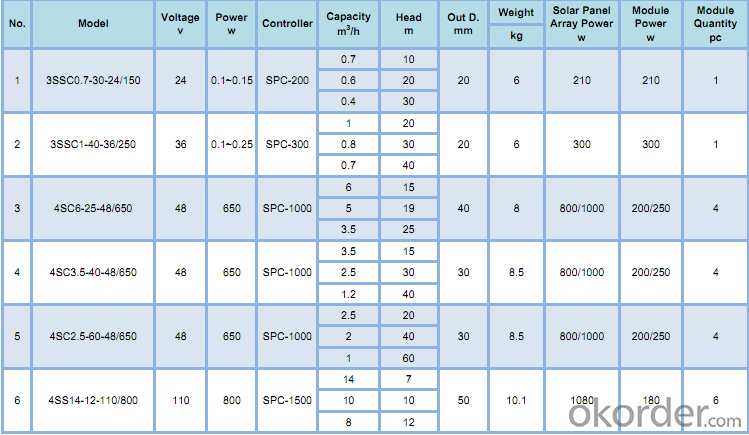
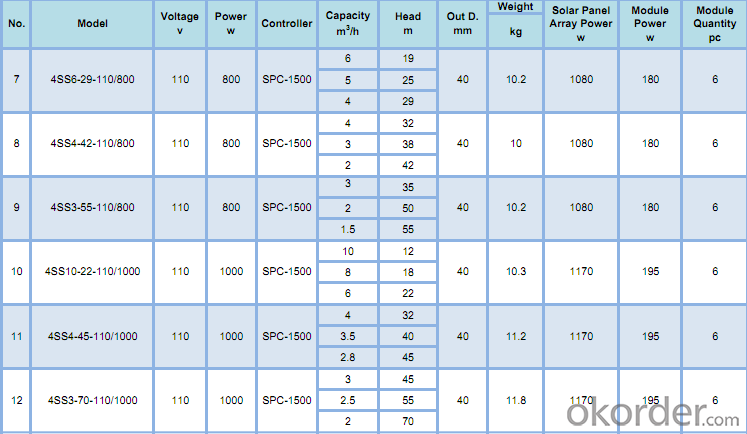
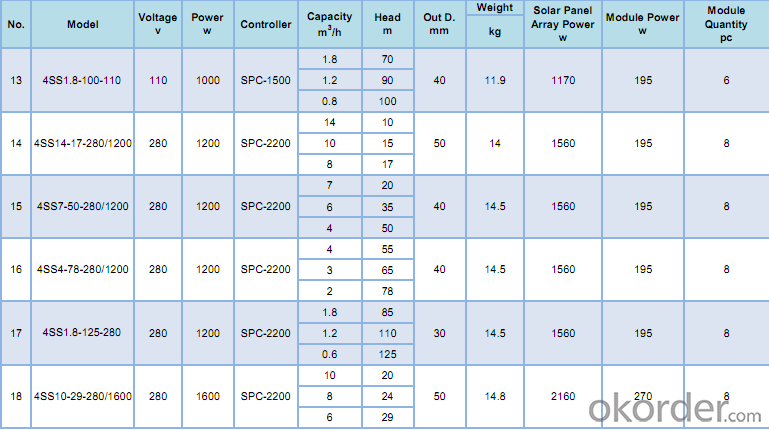
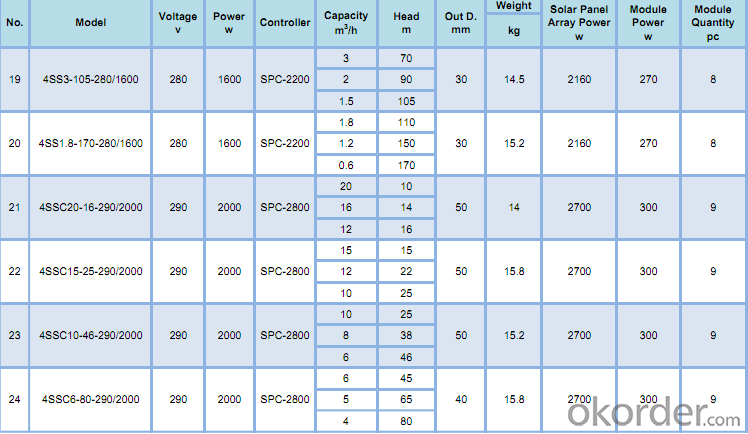
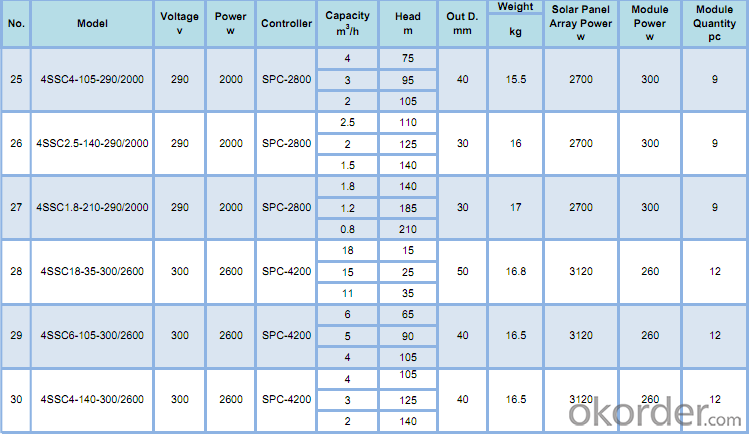
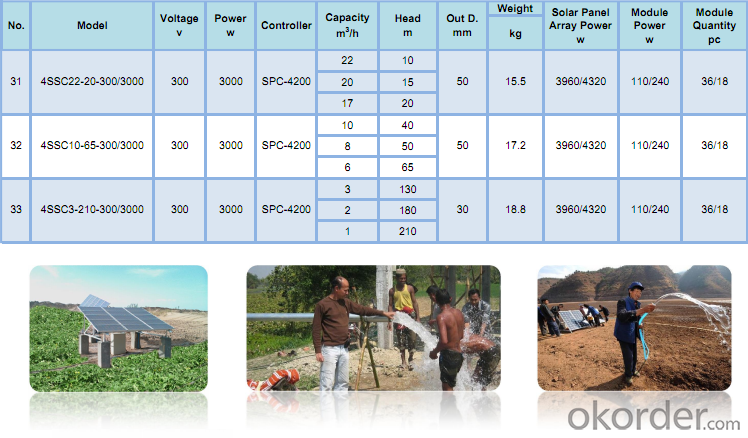
- Q: How often does a solar pump need maintenance?
- A solar pump typically requires minimal maintenance, usually once or twice a year, depending on factors such as water quality and usage. Regular inspections and cleaning of the panels, checking the pump's connections, and ensuring proper lubrication are generally sufficient to keep the system running smoothly.
- Q: What is the role of controllers in a solar pump system?
- The role of controllers in a solar pump system is to regulate and optimize the operation of the system. They monitor and control the power input from the solar panels, manage the battery storage if present, and control the pump's speed and operation based on the water demand. Controllers also provide protection functions, such as overvoltage and overcurrent protection, ensuring the system operates efficiently and reliably.
- Q: How does the performance of a solar pump vary with different water sources (e.g., well, river, lake)?
- The performance of a solar pump can vary with different water sources due to factors such as water quality, availability, and depth. Wells usually provide a reliable and consistent water source, making them well-suited for solar pump systems. Rivers may have varying water levels and flow rates, affecting the pump's efficiency. Lakes can offer a large volume of water, but their depth and quality may also impact the pump's performance. Overall, the suitability of a solar pump depends on the specific characteristics and conditions of the water source.
- Q: What is the warranty on a solar pump?
- The warranty on a solar pump can vary depending on the manufacturer and model, but most solar pumps typically come with a warranty ranging from 1 to 5 years. It's always important to check the specific warranty terms and conditions provided by the manufacturer before making a purchase.
- Q: How does the type of soil affect the installation of a solar pump?
- The type of soil can affect the installation of a solar pump in various ways. For example, sandy or loose soil may require additional stabilization measures to ensure the pump remains securely anchored. On the other hand, clay or compacted soil may pose challenges in terms of drilling holes or burying pipes. Additionally, soil composition can impact the efficiency of the pump by affecting the flow of water and the absorption of sunlight. Therefore, it is crucial to consider the soil type when installing a solar pump to ensure proper anchoring, efficient operation, and long-term performance.
- Q: Can a solar pump be used in disaster relief efforts?
- Yes, a solar pump can be used in disaster relief efforts. When a disaster strikes, access to clean water becomes a crucial necessity. Traditional water pumps that rely on electricity or fuel may not be readily available or may have limited supply during such situations. Solar pumps, on the other hand, are powered by sunlight, making them a reliable and sustainable solution for water pumping in disaster-stricken areas. Solar pumps are self-sustaining and do not require any external fuel or electricity supply, which is particularly advantageous in disaster situations where power grids may be disrupted or non-existent. They are easy to install and can be quickly deployed to provide immediate access to clean water. Additionally, solar pumps are low maintenance, reducing the need for constant monitoring and servicing, which can be challenging in disaster-stricken regions. These pumps can be used to extract water from wells, rivers, or any other water sources, providing a lifeline for affected communities. They can be employed to supply drinking water, irrigate agricultural fields, or support sanitation efforts, thus addressing multiple needs during disaster relief operations. Moreover, solar pumps are environmentally friendly, emitting no greenhouse gases or pollutants. This sustainability aspect is crucial in disaster scenarios, as it helps minimize further damage to the already vulnerable environment and supports long-term recovery efforts. In summary, solar pumps offer an efficient, reliable, and sustainable solution for water pumping during disaster relief efforts. Their ability to operate independently of electricity grids or fuel supplies makes them an ideal choice to provide immediate access to clean water in disaster-stricken areas.
- Q: Can a solar pump be used in areas with limited access to water conservation?
- Yes, a solar pump can be used in areas with limited access to water conservation. Solar pumps are an efficient and sustainable solution for water pumping, especially in areas where traditional electricity supply is unreliable or unavailable. With the use of solar panels, these pumps can operate independently and draw water from various sources such as wells, rivers, or boreholes. This helps conserve water resources by utilizing renewable energy and reducing dependence on conventional power sources.
- Q: Can solar pumps be used for fish ponds or aquaculture?
- Yes, solar pumps can be used for fish ponds or aquaculture. Solar pumps provide a sustainable and cost-effective solution for circulating and oxygenating water in fish ponds, promoting fish health and growth. They eliminate the need for grid electricity and can work efficiently even in remote areas where electricity supply is unreliable. Additionally, solar pumps are environmentally friendly, as they reduce carbon emissions and reliance on fossil fuels.
- Q: What is the minimum solar power requirement for a solar pump?
- The minimum solar power requirement for a solar pump depends on various factors such as the desired flow rate, the vertical distance the water needs to be pumped, and the efficiency of the pump. Generally, a small solar pump for domestic use may require around 200-400 watts of solar power, while larger pumps for agricultural or industrial purposes may require several kilowatts or even megawatts of solar power.
- Q: Can a solar pump be used in areas with high temperature fluctuations?
- Yes, a solar pump can be used in areas with high temperature fluctuations. Solar pumps are designed to operate in various temperature ranges and can withstand temperature fluctuations without affecting their performance. However, it is important to ensure that the solar pump is properly installed and protected from extreme temperatures to optimize its efficiency and longevity.
Send your message to us
Rainperfect Solar Pump Solar Water Panel for Irrigation
- Loading Port:
- Shanghai
- Payment Terms:
- TT OR LC
- Min Order Qty:
- 1 set
- Supply Capability:
- 1000 set/month
OKorder Service Pledge
OKorder Financial Service
Similar products
Hot products
Hot Searches
Related keywords
